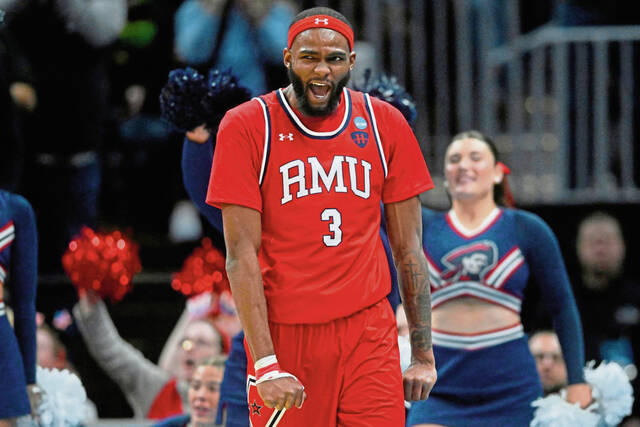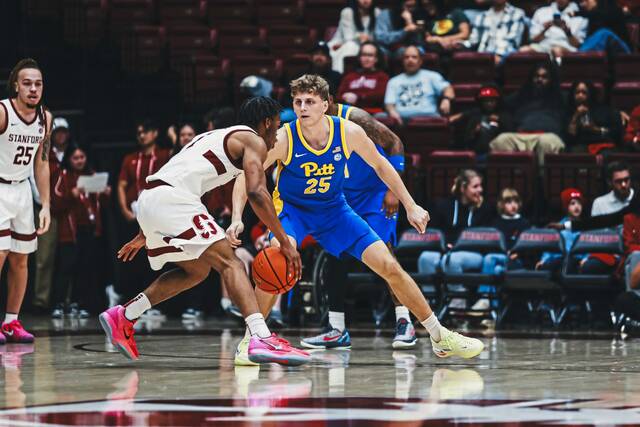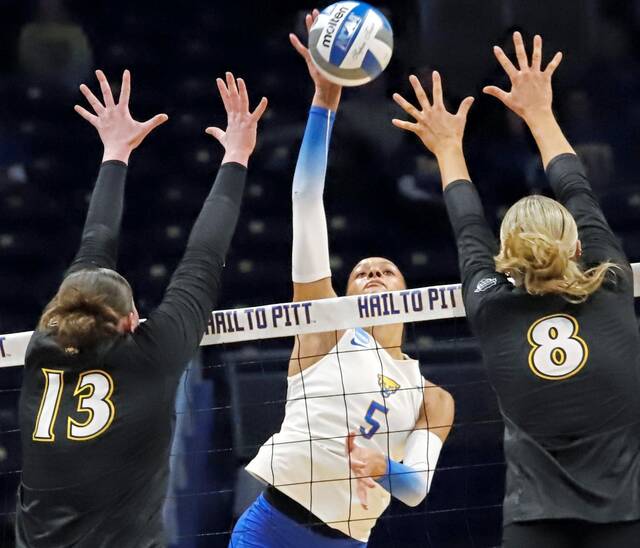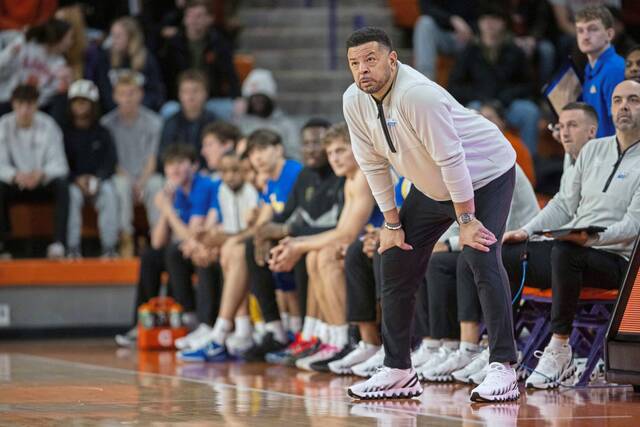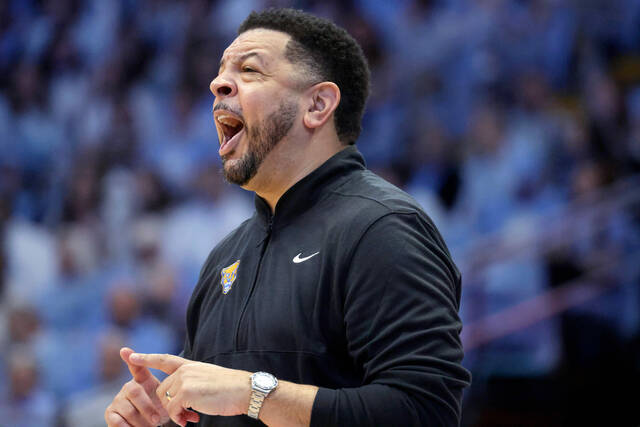It appears that the NCAA Division I Basketball Tournaments will not expand.
For now.
Thankfully.
Although it does seem like just a matter of time before that happens.
“The still viable outcomes include the tournaments remaining at 68 teams or expanding the fields to either 72 or 76 teams in advance of the 2026 or 2027 championships,” NCAA senior vice president of basketball Dan Gavitt said Thursday after committees that oversee March Madness concluded summer meetings without an expansion plan.
The debate doesn’t appear to be whether it’s wise to expand the bracket from a scheduling standpoint, integrity of record/achievement standpoint, workload/travel impact for the players or the fan preference point of view.
Pfft! Who cares about that meaningless crap, am I right, folks?
No, the biggest holdup appears to be about — you guessed it — finances.
As reported at The Athletic, “NCAA officials, led by Gavitt, have been working with television partners CBS and Warner Bros. Discovery to find ways through sponsorship opportunities to generate the revenue necessary to cover the cost of adding more teams and staging more games,” Ralph D. Russo wrote Thursday. “The NCAA’s rights deal with CBS and WBD pays the association more than $1 billion annually and runs through 2032, but the networks are under no obligation to increase the rights fee for a bigger tournament.”
That said, if there’s money to be had for both sides, they’ll both lap it up and they’ll make it work for each other. Now, how do they make the expansion of the field work?
For the purposes of this conversation, let’s look at it strictly through the lens of the men’s bracket. However, most of these talking points are applicable to the women’s field as well.
A lot of the mid-major conferences are in favor of tournament expansion because they think that’s the only way their one-or-two-bid leagues become two-or-three-bid leagues.
Aww! That is sooooo cute, isn’t it?
Of course, that’s not how it is going to go. It’s just going to mean more bids for the major conferences.
The SEC set got 14 of its 16 teams into the men’s bracket last year. Maybe after expansion, they’ll get all 16 in, and the Atlanta Hawks can jump in as the 17th.
But I digress.
More sports
• Former Pirates 1st-round pick says Oneil Cruz's greatest strength may also be 'his biggest detriment'• U mad, bro?: Pirates fans fume over criticism of Paul Skenes' pitch count, Steelers fans say, 'Pay T.J. Watt!'
• First Call: Cam Heyward cracks NFL top 100; Gavin McKenna already shifting NCAA hockey betting
As opposed to the concept of tournament expansion as I am, it does open the door to correct what I’ve long-deemed to be a flaw in the opening week of the current field of 68 format.
As of now, the “First Four” games in Dayton on Tuesday and Wednesday night in advance of the main bracket opening up on Thursday afternoon feature two games of one-bid, small conference schools squaring off to be on the 16-lines against No. 1 seeds. The other two games are teams from multi-bid leagues that were the last four teams into the bracket, usually fighting it out to be a 10 or an 11 seed.
I’ve never understood the concept of the 16-seeds playing each other in Dayton. Their role within the tournament is to attempt to be Cinderella on Thursday or Friday. If they happen to pull off an upset like UMBC or Fairleigh Dickinson have done in recent years, then see how far they can pull off that magic carpet ride.
That’s fun. Everyone tunes in to watch David versus Goliath in the NCAA Tournament. Unfortunately, no one tunes in to watch David versus David.
There is so little appeal to those 16-vs-16 games in Dayton, I don’t even know why they are played. Let the small conference winners have their moment in the sun. Put them right into the bracket proper, like the 64-team old days. All those schools should have a chance to do what Robert Morris almost did to Alabama this year.
Robert Morris keeping things CLOSE against No. 2 Alabama ???? pic.twitter.com/OTyOQEvD86
— Bleacher Report (@BleacherReport) March 21, 2025
Give them their golden opportunities as 15’s or 16’s to pull off massive upsets, and save the Dayton games for the bigger conference teams trying to get on the 10-or-11-line.
That’s good for everybody. More eyeballs will be on television sets because larger fanbases will have a rooting interest. More people will go to the games. The results will be more compelling, and, frankly, if we are expanding the field to 72 — and presumably a “First Eight” now — there’s an “earn it” factor that comes into play more readily for these representatives from the bloated major-conference pools.
For instance, last year, instead of making St. Francis and Alabama State play each other along with Mount St. Mary’s and American as the right to be cannon fodder for a No. 1 seed, they could’ve had four more power conference schools battling to play onto the other two open 11-lines along with Xavier-Texas and North Carolina-San Diego State.
Moving forward, if the field opens to 72, leave all the 10 and 11 seeds open. Play four games with eight multi-bid conference teams in Dayton on Tuesday to fill out the 10-lines, and follow the same format on Wednesday in — I dunno, you pick — Omaha. Or Tucson. Or Hartford. Wherever. Fill out the 11-lines that way.
Populate the “First Eight” with second-tier power conference teams and, umm, oh yeah, (clears throat) those mid-majors to create more interest.
To me, that’s a fair compromise to a problem that really doesn’t exist but is being created out of greed.
Many media members who cover the sport think it’s a lousy idea. Fans sure don’t want tournament expansion.
Please answer: Do you want NCAA Tournament expansion?
— Rob Dauster (@RobDauster) July 9, 2025
The only people who are in favor of considering the thought, unfortunately, are the people who matter. The commissioners, the networks, the NCAA execs, the school presidents and the coaches who would benefit from a contractual and stability point of view if there are more tournament spots to soak up.
The players? Eh, honestly, I don’t know. Sure, more of a chance to play in the big dance. That’s cool.
But seeing as how they’ve pushed to monetize the sport, are they getting bonus money to play in March? If so, is it enough that it is worth their time to play as the 71st team in the tournament after finishing in 13th place in the SEC? Or do they just want to start prep for next year, or transfer/graduate/turn pro and move on to the next chapter?
The point is, if expansion is inevitable, at least do it right — and maybe fix one minor flaw in the current system along the way.


